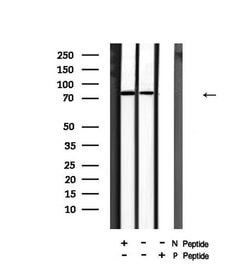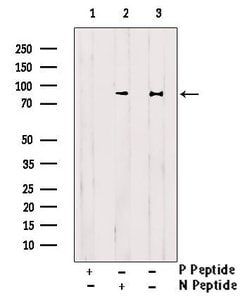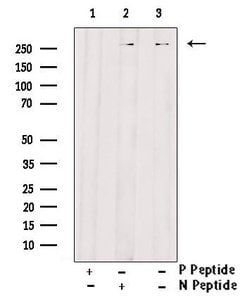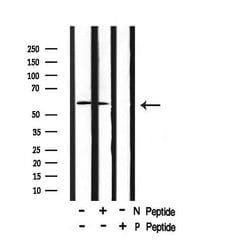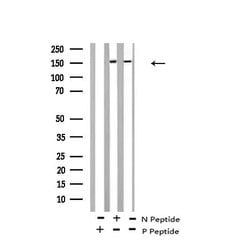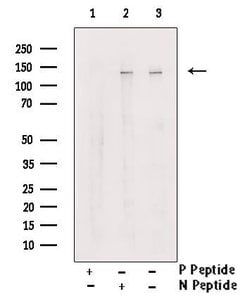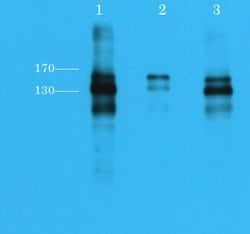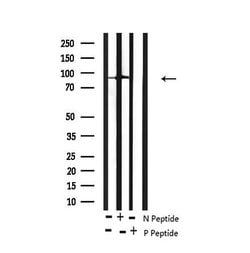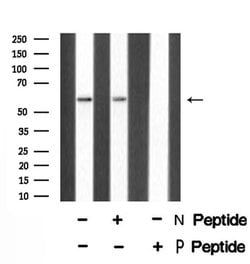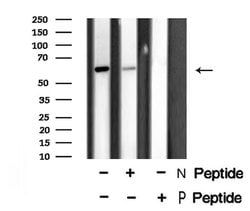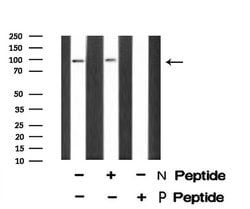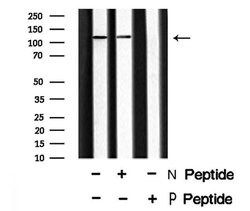Phospho-CEACAM1 (Ser508) Polyclonal Antibody, Invitrogen™
Manufacturer: Thermo Scientific
Select a Size
| Pack Size | SKU | Availability | Price |
|---|---|---|---|
| Each of 1 | PIPA5106119-Each-of-1 | In Stock | ₹ 46,502.50 |
PIPA5106119 - Each of 1
In Stock
Quantity
1
Base Price: ₹ 46,502.50
GST (18%): ₹ 8,370.45
Total Price: ₹ 54,872.95
Antigen
Phospho-CEACAM1 (Ser508)
Classification
Polyclonal
Conjugate
Unconjugated
Gene
CEACAM1
Gene Alias
antigen CD66; ATP-dependent taurocolate-carrier protein; bb-1; BGP; BGP1; BGP-1; BGPI; BGPR; Biliary glycoprotein 1; biliary glycoprotein D; bone gamma-carboxyglutamic acid (Gla) protein; carcinoembryonic antigen 1; carcinoembryonic antigen 7; carcinoembryonic antigen related cell adhesion molecule 1; carcinoembryonic antigen-related cell adhesion molecule 1; carcinoembryonic antigen-related cell adhesion molecule 1 (biliary glycoprotein); Cc1; C-CAM; C-CAM 105; Ccam1; CD66a; CD66a antigen; Cea1; Cea-1; Cea7; Cea-7; CEACAM1; CEA-related cell adhesion molecule 1; CEA-related cell adhesion molecule 1 (bone gamma-carboxyglutamic acid (Gla) protein) (osteocalcin); Cell-CAM 105; ecto-ATPase; GP110; hepatitis virus (MHV-4) susceptibility; hepatitis virus receptor; Hv2; Hv-2; mCEA1; Mhv-1; MHVR; MHV-R; MHVR1; mmCGM1; mmCGM1a; mmCGM2; murine hepatitis virus receptor; osteocalcin; pp120; pp120/ecto-ATPase
Host Species
Rabbit
Purification Method
sequential chromatography
Regulatory Status
RUO
Gene ID (Entrez)
634, 81613
Content And Storage
-20°C
Form
Liquid
Applications
Immunohistochemistry (Paraffin), Western Blot
Concentration
1 mg/mL
Formulation
PBS with 50% glycerol and 0.02% sodium azide; pH 7.4
Gene Accession No.
P13688, P16573
Gene Symbols
CEACAM1
Immunogen
A synthesized peptide derived from human CEACAM1(Accession P13688), corresponding to amino acid residues around phosphorylated Ser508.
Quantity
100 μL
Primary or Secondary
Primary
Target Species
Human, Rat
Product Type
Antibody
Isotype
IgG
Description
- Antibody detects endogenous levels of CD66/CEACAM1 only when phosphorylated at Ser508
- CEACAM1 is a member of the carcinoembryonic antigen (CEA) gene family, which belongs to the immunoglobulin superfamily
- Two subgroups of the CEA family, the CEA cell adhesion molecules and the pregnancy-specific glycoproteins, are located within a 1.2 Mb cluster on the long arm of chromosome 19
- Eleven pseudogenes of the CEA cell adhesion molecule subgroup are also found in the cluster
- The encoded protein was originally described in bile ducts of liver as biliary glycoprotein
- Subsequently, it was found to be a cell-cell adhesion molecule detected on leukocytes, epithelia, and endothelia
- The encoded protein mediates cell adhesion via homophilic as well as heterophilic binding to other proteins of the subgroup
- Multiple cellular activities have been attributed to the encoded protein, including roles in the differentiation and arrangement of tissue three-dimensional structure, angiogenesis, apoptosis, tumor suppression, metastasis, and the modulation of innate and adaptive immune responses
- Multiple transcript variants encoding different isoforms have been reported, but the full-length nature of only two has been determined.
